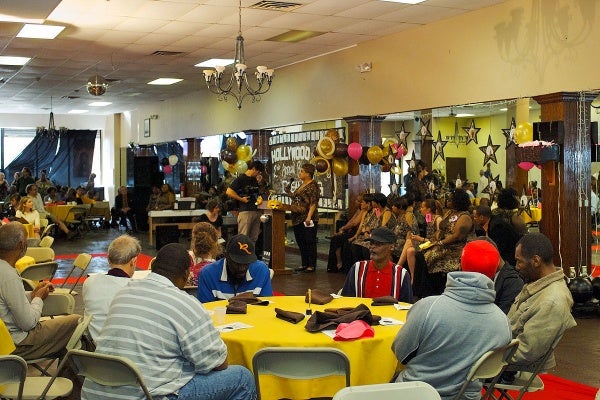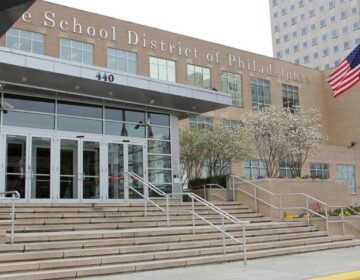Germantown Recovery Community members ‘dream big,’ celebrate inner and outer beauty
Germantown Recovery Community members-turned-models showcased their fashion, hair and makeup at The Recovery Hair Show on Tuesday. The event was presented by Northwest Human Services (NHS) and the GRC to celebrate their members’ recovery journeys.
NHS and the GRC provide care and services for mental health, addictive diseases, education, juvenile justice, foster care, permanency, autism and intellectual and developmental disabilities.
The show’s “Dream Big” theme was chosen by members who designed the set and created flyers to hand out along Germantown Avenue.
This was the first time the GRC opened its annual hair show to the public in an effort to give mental illness a human face. There, members modeled new hairstyles, walked the red carpet and spoke about recovering from mental-health challenges and addiction.
Serena Carter, who has been a member since 2003, said too many people have the wrong idea about mental illness. She hoped the hair show, which was held at Treasures Banquet Hall on Germantown Avenue, would encourage people to receive help from NHS.
“Mental illness is [when] you have a problem that you don’t know the answer to,” said Carter. “NHS gives me realness. You don’t have to put up a phony act.”
‘We are not our illness’
The hair show was filmed as a part of a feature-length documentary about GRC recovery guide Rachel “Hollywood” Carr’s Hollywood Beauty Salon, which was described as a place for members to have their hair done while sharing their stories with one another.
“I really want people to hear us, I want them to see us, I want them to understand us,” said Carr. “I want them to love us, and I want them to support us.”
Carr initially became involved with NHS as a member and later worked three years as a certified peer specialist. She said she took on more duties at NHS to challenge herself.
“We want them to feel good about themselves so that they can do things like get a job and finish their education,” said Carr. “It’s important that they believe in themselves.”
Richard Scott, vice president of communication for NHS, said the salon is a unique place for members.
“Our beauty shop shows our members how to take care of themselves,” said Scott, “but it’s really about from beauty from the inside out, and the journey that they go through.”
A different model for mental illness
Tess Zakrzwski, program director of the GRC, said the center is different from old medical models because they focus on the whole person, including their aspirations.
“It’s not about hair,” said Zakrzwski. “It’s about the members and their personal story. We’re celebrating their life journeys and their experiences at NHS.”
She said other components of treatment and rehabilitation programs include creative art therapies like music, creative writing, cooking, education and vocation.
“We want to help them fulfill their dreams in spite of their challenges,” said Zakrzwski.
Paul Sachs, executive director for NHS Philadelphia, said the show was just one piece of the entire program. The group has a variety of specialized programs including professional development, education, community outreach and group activities.
“We want them to accomplish their goals,” said Sachs.
Yvette Paige, who became a member in 1999, has spent the last eight years working as a horticultural aide assistant for NHS. She said the event was important for the group.
“This event is big for NHS,” said Paige. “We want to reach out to the community, to people who don’t know about being sick. We want to show them that we are good people, [that] we’re still normal.”
WHYY is your source for fact-based, in-depth journalism and information. As a nonprofit organization, we rely on financial support from readers like you. Please give today.



















